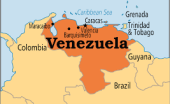Molly Minturn - My family is heartbroken to share that my father died in surgery on Monday, Feb. 10. It…
Greece 2016 – 2019
Written by Diana Thebaud Nicholson // July 8, 2019 // Europe & EU // Comments Off on Greece 2016 – 2019
(The Guardian) Greece
(Reuters) Greece
Roger Cohen: Greece Is the Good News Story in Europe
Greek resilience through crisis demonstrates that reports of democracy’s demise are exaggerated.
If you’re looking for an optimistic story in Europe, try Greece. Yes, you read that right. Having lost a quarter of its economy in a devastating recession, Greece has turned the corner, its democracy intact, its extremist temptations defeated and its anti-Americanism defunct.
The landslide election on Sunday of Kyriakos Mitsotakis, the dynamic leader of the center-right New Democracy party, marked the end of a chapter. Greece rejected Alexis Tsipras, the leftist leader who took the country to the brink of ruin in 2015 before discovering a pragmatic streak. It also voted the neo-Nazi Golden Dawn out of Parliament. At the height of the crisis, Golden Dawn had become the country’s third-largest party.
First into populism, Greece is now first out. For a country in free fall, the anchors of the European Union and NATO are not so negligible after all. Europe is not simply a story of growing nationalism and xenophobia. It’s a continent in violent flux, torn between liberal democratic and nativist currents.
Despite unemployment that reached almost 30 percent, a chaotic near-exit from the euro, huge bailouts to save it from bankruptcy, mandated austerity programs and a wave of desperate refugees from Syria, Greece stabilized itself. It’s a reminder that reports of democracy’s demise are exaggerated.
The “kolotoumpa,” or “somersault,” is the term used for Greece’s volte-face in 2015 when it voted in a referendum to reject the terms for an international bailout, only for Tsipras, the leader of the far-left Syriza party, to ignore the results and conclude a bailout on even tougher terms.
That somersault is now completed. Mitsotakis is a Harvard- and Stanford-educated former McKinsey man from one of Greece’s pre-eminent political families. To be elected, he had to overcome perceptions that he was too “American” and too technocratic.
Through a hard-driving campaign in which he promised to cut corporate taxes, unblock privatization, deliver a digital transformation of the economy, attract investment and bring efficiency to the public sector, Mitsotakis convinced Greeks he was the man to turn glimmerings of recovery into sustainable growth. With an absolute majority in Parliament, he has the means to fast-forward his program.
3 July
Greece Is Over Its Crisis, but Europe Isn’t
Rachel Donadio writes on the lessons learned—or not—from the past 10 years.
(The Atlantic) The financially troubled European Union country is now poised to enter a new phase—which is also a return to an old one—of mainstream parties and stable politics. Prime Minister Alexis Tsipras, who leads the left-wing Syriza party and rose to power on a platform of lifting the country out of harsh austerity measures but ended up implementing austerity anyway, faces defeat in Sunday’s national elections. His challenger, and the likely victor: Kyriakos Mitsotakis, a center-right establishment politician.
A decade after the first EU bailout program aimed at helping Greece avert bankruptcy, whether European institutions and other EU countries chose the right approach toward Greece depends on which politician you ask.
2016
11 January
(Quartz) Greece’s opposition got a new leader. Kyriakos Mitsotakis—who has called prime minister Alexis Tsipras a liar in the past—was voted president of the center-right New Democracy Party. Mitsotakis, who’s had to fend off accusations of being a Thatcherite from his own party, has hinted that he could work with Tsipras on certain issues.
Who Is New Democracy President Kyriakos Mitsotakis?
(Greek Reporter) … he is the son of former Prime Minister of Greece and honorary president of New Democracy Konstantinos Mitsotakis. He was only a few months old when his family moved in self-exile to Paris, as his father was a persona non grata for the military junta.
He returned when democracy was restored in 1974. In 1986 he left for the U.S.A. where he studied Social Studies at Harvard University. He graduated summa com laude in 1990. He was also honored with the Hoopes prize.
He worked as an economic analyst at Chase Manhattan Bank from 1990 to 1991 in London. He later returned to Greece and went to the Hellenic Air Force to do his military duty. After his service, he returned to the United States where he continued his studies at Stanford University from which received a Masters in the International Economic Plan. He continued his studies at Harvard where he received an MBA.
4 January
Greece’s economic crisis goes on, like an odyssey without end
Last year was deeply tumultuous for the troubled country but with growing fears of social unrest, 2016 could be even more unpredictable
(The Guardian) Last year was tumultuous, punctuated by two elections, a referendum, the imposition of capital controls, negotiations to reach a bailout deal, cliffhanger parliamentary votes and Athens’ closest brush yet with bankruptcy and euro exit. But 2016 could be more unpredictable still. The hardest, many agree, is yet to come, even if Greeks have stared into the abyss and accepted there is no alternative to the constraints of membership of the eurozone.
“Just when a lot of people thought it couldn’t get worse, it seems it can,” says Toula Thanopoulou, the director of the Union of Borrowers and Consumers. “We are seeing people in really bad shape psychologically. They are incredibly scared that the next step will be banks taking away their homes. The government says all will be well, but the problem is no one believes it.”
The question now being asked, as the thrice bailed-out nation heads into its most difficult winter yet, is whether Greece will ever be able to bounce back. Six years into the country’s morale-sapping debt drama, the omens are mixed.


